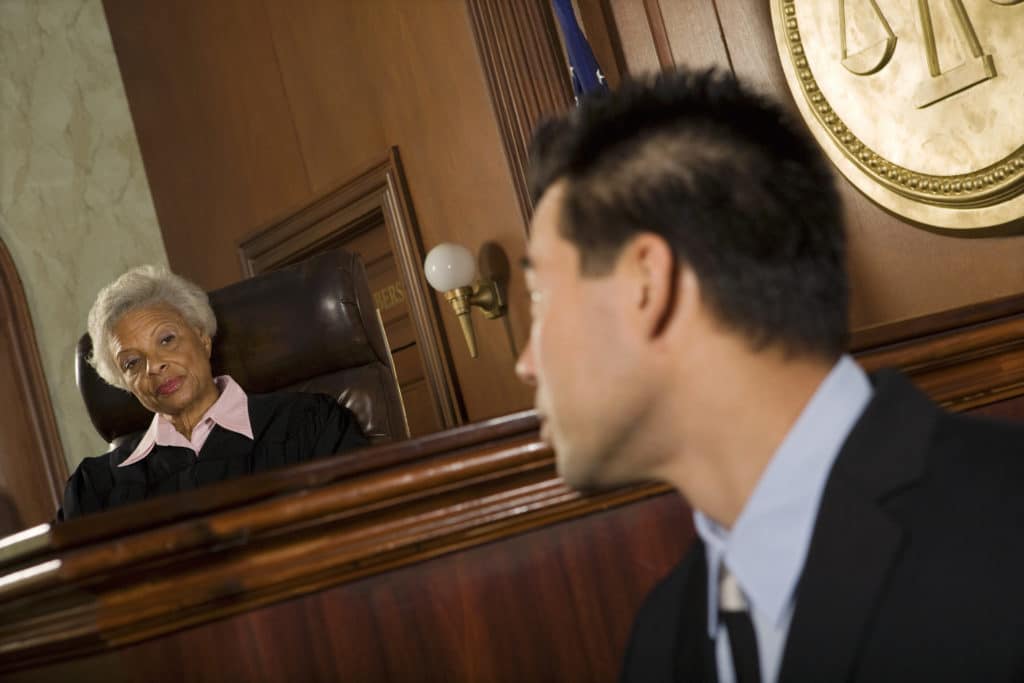Trial Themes: How Using an Effective Narrative Can Save Your Case
If you’ve ever seen a movie that involves a trial scene, you’ll likely remember the impactful nature of the opening and closing statements. Equally as impactful are the questions that the lawyer asks the witnesses, always getting dramatic responses and raising eyebrows from the jury. The reason that courtroom scenes are so powerful in films is the same reason that they are powerful in real life. The truth is, that lawyers have to consider the themes that operate their case, as human beings frequently think in narratives and seem to understand events when they can think of them as part of one cohesive unit. So let’s talk about the importance of case themes and how having a mock trial can help you hone in on the message you need to transmit to juries in a clear and effective manner.
According to the Scientific American, it is in our nature to need stories. The human being thinks in narrative and links information according to themes. Perhaps it’s because how we learn early on about the world and how the world works. After all, cultures across the world tell their children stories in order that they learn about important concepts that they will encounter in life. We use logic inside of stories better than we do outside. This is an important detail to learn.
So when you have a court case, if a juror is thinking about it with themes that you lay out for them, they are likely to better take in the evidence.
So what is a theme when referring to court cases?
A theme is a unifying idea. From a jury psychology perspective themes are intentionally oversimplified concepts that connect experiences of the jurors with the complex evidence of the case. In other words, a focus on theme is distilling the complex details of a case or evidence that allows jurors to break that down into a relatively simple story. Formulating a theme also means that you help jurors relate to the information. There are a couple of things you can achieve by structuring your case under a strong and effective theme. These are:
- Have jurors relate the case closely to their experience and expectations
- Gives jurors the feeling that with their verdict they are doing the right thing
It’s important for attorneys preparing a case not to confuse a theme with an argument. The argument can operate within a theme but it is separate.
When Themes Come Into Play
From the moment counsel first encounters the jury, a case should be presented thematically. Most will even suggest that working a case thematically begins from the moment of voir dire—when potential jurors are met. Others argue that void dire might be a place to test themes. Yet, testing themes in mock trials is a more effective way to walk into the courtroom already prepared and knowing the shape and thematic framework of your case.
As impartial as you might want a jury, the truth is that people bring in some level of experience to their jury experience. This is why a theme is an effective way to try and capture the juror’s experience as a lens with which to view your case.
Developing a Theme
Most lawyers know that themes are important in case work. And yet, many are not sure how to approach the building of a theme and the development of a theme in a case. Here at Jonathan Leach, LLC, we can help you develop and test these themes. So developing a theme might mean that you tap into your experience with story and how themes have influenced you in the past.
One way to do this is to consider your favorite films and study how they use themes to convey a story. Similarly, if a film uses a tagline or, the tagline itself can be an effective entry point into the film. Actually writing down your theme through a tagline might be a way to put it into language and see if it is effective. It is also important to try it out on your friends and family and see how they respond. You want to see how average people respond in order to get a better idea of how a jury might take this. This is another reason why mock trials can be a great way to test out the effectiveness of your themes.
When Themes Take Hold
Research shows that for juries, the jury deliberation process is where they do a lot of their processing and come to their decisions. The conversations they have with other jurors tend to be big moments of persuasion. This is why it’s important to communicate themes to the jury, as they will then use these themes with which to talk about and understand the case as they deliberate with their peers. It’s a way to give your jurors a framework and when done effectively can help persuade other jurors to better understand your case.
Develop Themes With Mock Trials and Shadow Juries
There is no better place to test out the effectiveness of your themes than in a mock trial. As a courtroom consultant, we help trial teams prepare for court, mediations, and trials. Call Johnathan Leach, LLC and test out your trial and trail themes. Call us today!

